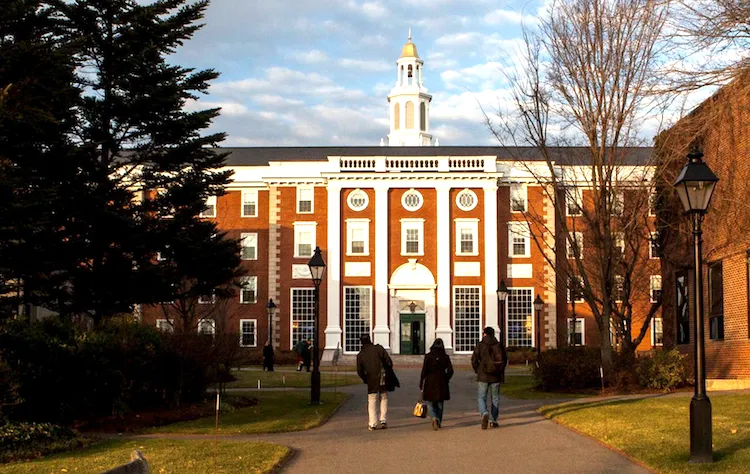
Harvard establishes America’s first Psychedelics Law and Policy Center and
Picture over
Harvard Law School plans to open the first U.S. political center to focus on the legalization and regulation of psychedelics such as psilocybin, MDMA, and LSD.
The Project on Psychedelics Law and Regulation (POPLAR) is a three-year project with the aim of “promoting security, innovation and equity in psychedelics research, commerce and therapeutics,” the university said in a press release. This new program is funded by private investors including Matt Wullenweg, developer of WordPress, and philanthropist Tim Ferriss.
“Preliminary research suggests that psychedelics could be of great benefit to people with trauma and post-traumatic stress disorder,” said Jeannie Suk Gersen, John H. Watson Jr. Professor of Law at Harvard Law School. “By analyzing social, legal, and political barriers to entry in this context, we hope to advance understanding of their potential effects as therapeutics.”
Several prestigious American universities have set up their own psychedelics centers over the past decade. Johns Hopkins University, a leader in psychedelics research, officially opened its center for psychedelics and consciousness research in 2019, and the Medical University of South Carolina is planning to open a similar research center. However, Harvard’s new center will be the first to focus exclusively on psychedelics policies and laws, and not research.
“Right now there are a handful of psychedelics research centers in universities across the country. However, they are focused on clinical research, ”said Mason Marks, MD, JD, senior fellow and project leader on the psychedelic law and regulation project at the Petrie-Flom Center for Health Law Policy, Biotechnology, and Bioethics at Harvard Law School. in a press release. “There is no systematic research on the psychedelics law, and POPLAR will fill this gap.”
Professor Marks is also a member of the Oregon Psilocybin Advisory Board, an agency charged with overseeing the country’s first legal therapeutic psilocybin program. Last fall, Oregon became the first state in the US to legalize psilocybin-assisted therapy, and California lawmakers and activists are working to fully legalize psilocybin by the end of next year. The US Food and Drug Administration is also currently funding clinical trials that could lead to state legalization of psilocybin- and MDMA-based therapy within the next two years.
Several individual cities across the country have already decriminalized natural psychedelics, and lawmakers in eight states are currently debating laws to decriminalize or legalize these drugs. The US medical psychedelics market is projected to grow to $ 6.85 billion by 2027, but despite this growing investment, Harvard has found that “there is a relative lack of research into the ethical, legal, and social implications of psychedelics research, of trade and therapeutics. “
POPLAR plans to focus on five specific goals in the emerging field of psychedelics. The team plans to explore ways to secure government support for psychedelics research, professional ethics in psychedelic assisted therapy, and potential intellectual property law challenges in the emerging industry. The project is also intended to advance research on how psychedelics can heal trauma and how equitable access to these therapies can be guaranteed.
To achieve these goals, POPLAR will publish academic research, host academic events and roundtables, and work with clinical researchers to help them address potential legal and ethical challenges. The project hopes to train courts, lawmakers, and government agencies to help state or federal officials formulate evidence-based regulations and laws on the use of medical psychedelics.

Post a comment: